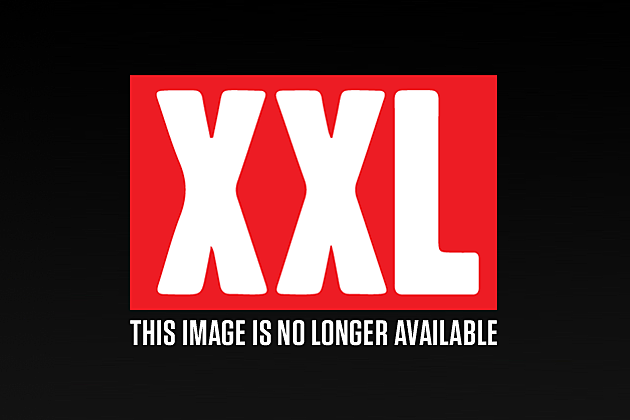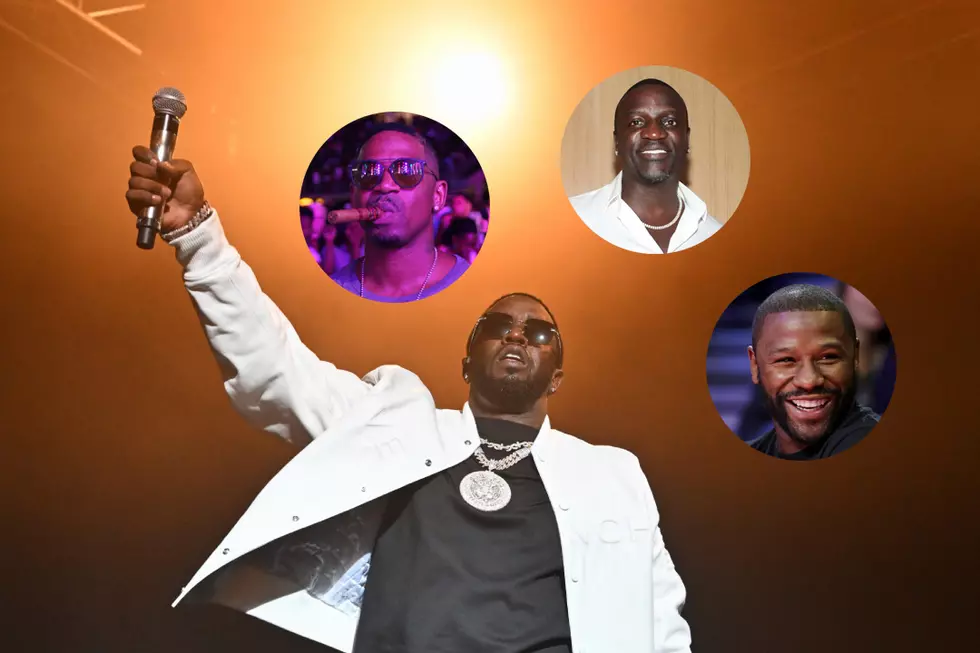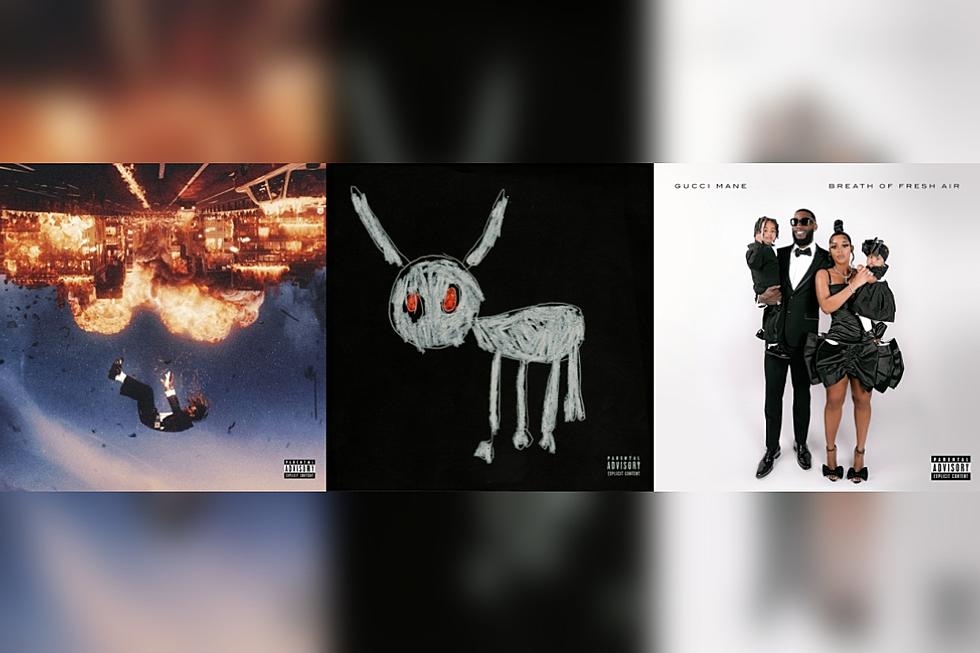
FEATURE: Paul Wall, What Happened to That Boy
Paul Wall had the internet going nuts before the game migrated online. Already an underground favorite in the South, the self-proclaimed "People's Champ"'s buzz spread nationwide courtesy of his guest appearance on fellow Houstonian Mike Jones's "Still Tippin'" back in 2005.
Paul's buzz got so loud, that he was up-streamed from Asylum—an independent Atlantic Records subsidiary—to the parent label. Collaborations with Kanye West ("Drive Slow"), Jim Jones and Diddy ("What You Been Drankin On?") as well as Nelly "Grillz" soon followed—laying the groundwork for his platinum-selling major label debut, The Peoples Champ. With platinum releases from former partner-in-rhyme Chamillionaire and a gold effort from Slim Thug, Houston became hip-hop's hottest city with Paul at the forefront.
But as H-Town's buzz began dying down, so did Paul's. His next LP, 2007's Get Money, Stay True, failed to earn a RIAA certification of any kind. Then, with every other rapper embracing the online space, Paul, who was unequivocally ahead of the web curve back in '05, seemingly vanished. Now back on Asylum, PW recently released his fourth solo album, Fast Life. The LP had sold 60, 000 units to date. XXLMag.com caught up with Paul to discuss his lack of online presence, being down-streamed back to Asylum and not being perceived as a white rapper.
XXLMag.com: Where you been man?
Paul Wall: I been on the run. I’m just tryna get it—on the road touring, in the studio. Me and the boy T. Farris been in the lab just coming up with new music for about the past year and a half, but really mostly just on the road during a lot of touring.
XXL: Where is the Paul Wall music?
Paul Wall: For some reason man we don’t ever really leak our music out. We just kinda record it at our house and keep stacking records and as we get into the groove and perfect whatever theme we tryna go for, for the album. Once we kinda start getting the music ready—we dropped a couple singles here and there. I did one with Chamillionaire and Lil’ Keke called “Diamonds Exposed,” but it really ain’t go good for us like we had hoped and planned, and we’re doing some renegotiating with our record label here and they kinda really put a halt on the song. We did another song with Akon but we couldn’t get the clearance from the record label so that kind of put another halt on us. But [in the] meantime, we put out mixtapes here and there, but it’s hard being on the road. That’s a hard thing and even when we record on the road, it ain’t the same thing. So we just been mostly been touring and then we get back home we do a little recording too.
XXL: With the game moving so fast now and people hitting the blogs so much, aren’t you concerned if you hold the music and everybody else putting it out it’s going to be harder for you to come back?
Paul Wall: Well I think if you wait too long then, yeah it is, man. And especially the longer you wait, the harder it is to come back, the bigger the hit got to be. I think it’s gon work for us. We got the right music. We got the right work ethic, a hell of a staff and a hell of a team working behind us and working with us making the machine. The wheel is going in motion so I think we gon be good.
XXL: When you first came out you were on Asylum and then got upstreamed to Atlantic. What’s the situation now?
Paul Wall: Now we back on Asylum so it’s even, you know, real good for us cause we got a lot of control over what we do. On Atlantic, when you on that big machine, you know, you really have less control. But they got the big budget, and the better, the bigger deals and connections so it’s a pro and con. You gotta compromise and work with what works for you. It was a learning process for us. Being back on Asylum I feel like we have better control over what we do. Financially, we getting more money off the records too so it’s a good thing.
XXL: Was it your decision to go back to Asylum?
Paul Wall: Um, you know, when we got upstream to Atlantic, we were happy that somebody wanted to upstream us. And at the time, Warner Bros. and Atlantic wanted to upstream us so we went with Atlantic just to try something different, and it worked out real good for us with the album. And with this album coming around again, you know Atlantic they were a lil bit slower on things, and Asylum pushed for [us]—we felt like they really wanted us. We felt like, "Let’s go with who we feel really wants us and who wants to do work with us." And I feel like the people at Asylum really believed in me and believed in my music, believed in my career. So you know, it just made sense to me.
XXL: Back in ’05 you had the internet going nuts. Now everybody is going nuts on the internet, but I don’t see Paul Wall on the net.
Paul Wall: Man, I kind of gave that up. Man, that’s too much nosiness, 'cause I just really feel like I got a lot of homeboys that just live and die for Twitter and Facebook and MySpace; and in my opinion, it’s a good way for artists to promote or whatever, but the way that some people just live and die for the gossip and what’s going on. I look at MediaTakeOut too like everybody else every now and then to see what’s going on in hip-hop, but it’s just sometimes when you live and die for it and you wake up to see what’s going on in other people’s live, to me it’s like I gotta like myself, you know I’m maintaining what I got going on in my life. I’m not really too worried bout what’s going on over here, you know what I’m saying? So I kinda just let it go a little bit, man. I got off the internet man. You ain’t lying, I had the internet going nuts at first, now the internet is going nuts for everybody but it’s cooled off, but it’s all good we gon get it back going.
XXL: It's a pretty big year for white rappers. Eminem is back and Asher Roth recently emerged. Those two in particular caught a lot of flack coming up, but you didn't. There's never been a "Fuck Paul Wall" song. What do you think it worked out that way?
Paul Wall: I don’t know why I never really got a lot of flack for being a white artist. I think it’s because I’m me. I know I have a lot of fans who are white. I have fans that are Black, Hispanic, Asian, whatever, partly because Houston is so multi-cultural and multi-racial and people in Texas in general embrace me and represent for me like I do for them. Other than that, I don’t know why I ain’t never really got a lot of flack. You know you might hear people talking about hating for no reason, but I kinda buzzed off and I don’t pay too much attention. God has blessed me to not catch too much flack for it. Of course, me as an artist, I don’t wanna have problems like that. I’m tryna [to] handle my career. That’s how things get thrown at you to throw you off your note. And some people, man, they benefit from it. They use it as motivation or use it to help strike a buzz, but me personally, man, I try not to deal with that type of thing, but I don’t know why I never got the flack, man, but it’s all good.
XXL: When people talk about white rappers, there’s a list, and your name doesn’t come up.
Paul Wall: The homeboys used to joke and say I got voted where I’m just everybody. I’m every race, but you know I am white that’s what I am. It’s just a description about me like I’m six feet tall, I’m fat, and I’m white and I gotta grill in my mouth. That’s just a description of how I look. I don’t think it’s a defining characteristic about me. Me and T.I. used to kick it real hard back in the day. He was talking one time and Lyor Cohen had called him up, and be like, "Man, whassup with this white rapper you got down there that you messing with," and he was like, “Who you talking bout?” And it took him bout 10 minutes to realize he was talking bout me. “Your boy from Houston, your boy from Texas, you know, the white guy from Texas,” that’s what Lyor Cohen said. And T.I. was like, “Man, what you talking bout? From Texas? You talking bout this person?” Then he said “The boy from Texas, the white boy, Paul Wall.” And he was like, “Damn, you know what, I forgot Paul Wall was white.” So it’s funny you say that cause T.I. told me the same thing.—
Carl Chery
More From XXL









